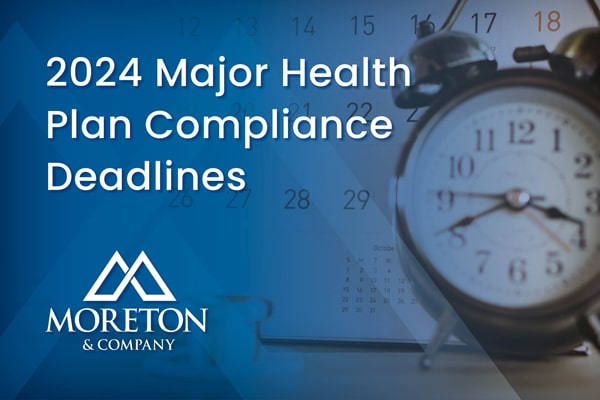
Not Enough Sleep Can be
Linked to Higher Risk of Disease
Getting less than five hours of sleep in mid-to-late life could be linked to an increased risk of developing at least two chronic diseases. The research, published in PLOS Medicine, analyzed the impact of sleep duration on the health of more than 7,000 men and women at the ages of 50, 60 and 70, from the Whitehall II Cohort Study.
Researchers examined the relationship between how long each participant slept for, mortality, and whether they had been diagnosed with two or more chronic diseases (multimorbidity) such as heart disease, cancer or diabetes, over the course of 25 years.
People who reported getting five hours of sleep or less at age 50 were 20% more likely to have been diagnosed with a chronic disease and 40% more likely to be diagnosed with two or more chronic diseases over 25 years, compared to people who slept for up to seven hours. Additionally, sleeping for five hours or less at the age of 50, 60, and 70 was linked to a 30% to 40% increased risk of multimorbidity when compared with those who slept for up to seven hours.
Researchers also found that sleep duration of five hours or less at age 50 was associated with 25% increased risk of mortality over the 25 years of follow-up – which can mainly be explained by the fact that short sleep duration increases the risk of chronic disease(s) that in turn increase the risk of death.
Lead author, Dr. Severine Sabia (UCL Institute of Epidemiology & Health, and Inserm, Université Paris Cité) said “Multimorbidity is on the rise in high income countries, and more than half of older adults now have at least two chronic diseases.” The sleep habits and sleep structure changes as people get older. However, it is recommended to sleep for 7 to 8 hours a night and our findings show that short sleep duration is also associated with multimorbidity.”
It is important to promote good sleep hygiene, such as making sure the bedroom is quiet, dark, and a comfortable temperature before sleeping. It’s also advised to remove electronic devices and avoid large meals before bedtime. Physical activity and exposure to light during the day might also promote good sleep. Jo Whitmore, senior cardiac nurse at the British Heart Foundation said: “Getting enough sleep allows your body to rest. There are a host of other ways that poor sleep could increase the risk of heart disease or stroke, including increasing inflammation and blood pressure. This research adds to a growing body of evidence that highlights the importance of getting a good night’s sleep.”
University College London. “Less than five hours’ sleep a night linked to higher risk of multiple diseases.” ScienceDaily. ScienceDaily, 19 October 2022. www.sciencedaily.com/releases/2022/10/221018220538.htm
Sleep Disorders
Sleep is essential for normal, healthy function. However, about 40 million people in the United States suffer from chronic sleep disorders each year, and another 20 million people suffer occasional sleep problems.
Types and Causes
There are more than 100 different sleep and wake disorders. Sleep disorders can include:
- Trouble falling and staying asleep, such as insomnia
- Disturbed sleep, such as sleep apnea or restless leg syndrome
- Excessive sleep, such as narcolepsy
- Trouble sticking to a regular sleep schedule (usually seen in travelers or nighttime workers)
Sleep disorders are very common and can result from several causes, including stress, illness, diet, or medication. Other causes include genetics, night-shift work, blindness, mental illness, physical illness, and aging.
Diagnosis
People with possible sleep disorders should keep a daily log of activities and sleep, including both when going to sleep and time asleep. Keep a log of behavior during sleep, symptoms such as snoring or frequent waking, should be reported to the doctor.
Treatment
If a cause has not been identified for a particular sleep disorder, improving sleep habits is the best way to overcome the disorder. Follow these tips for a good night’s sleep:
- Go to bed and wake up at the same time every day, even on the weekends.
- Exercise daily, but not within a few hours of going to bed.
- Avoid caffeine, cigarettes, and alcohol within several hours of bedtime.
- Enjoy a relaxing bedtime ritual every night before going to sleep.
- Wake up to the sun by opening curtains or shades and letting in the sunlight. The sun helps reset the biological clock, which is the part of the brain that indicates both sleepiness and when it is time to wake up.
- Make sure that the room is not too hot or too cold before going to bed.
Mental Health Moment
Sleep & Mental Health
It’s easy to cut into our sleep schedule when we are caught up with extra work at the office, watching a late-night TV show, or spending a late night with friends or family. However, it’s important to get enough sleep to maintain our physical and mental well-being. On average, adults need about 8 hours of sleep every night. When time for sleep is lost, sleep deprivation can set in, which is one of the biggest risk factors for depression. Mental health disorders, such as depression, seasonal affective disorder, anxiety, bipolar disorder, can also be impacted by personal sleep hygiene.
It is important to maintain a regular sleep schedule to ensure our physical and mental well-being. Having a consistent sleep schedule will also help you to achieve REM, or Rapid Eye Movement, sleep, which is a stage of rest that makes up the sleep cycle. Research shows that REM sleep allows your brain to develop better thinking, learning, and memory, and can also boost your emotional and mental health.
Consider some of the following practices that can help you to develop and maintain a regular sleeping schedule:
- Aim for a target of 8 hours of sleep per night.
- Get up and turn in to bed at the same time every day.
- Keep your bed reserved for sleep, and vice versa.
- Cut out bright lights or work 1 hour before bedtime.
TLC elements. Therapeutic Lifestyle Change (TLC). (2015, May 2). Retrieved January 10, 2023, from http://tlc.ku.edu/elements


